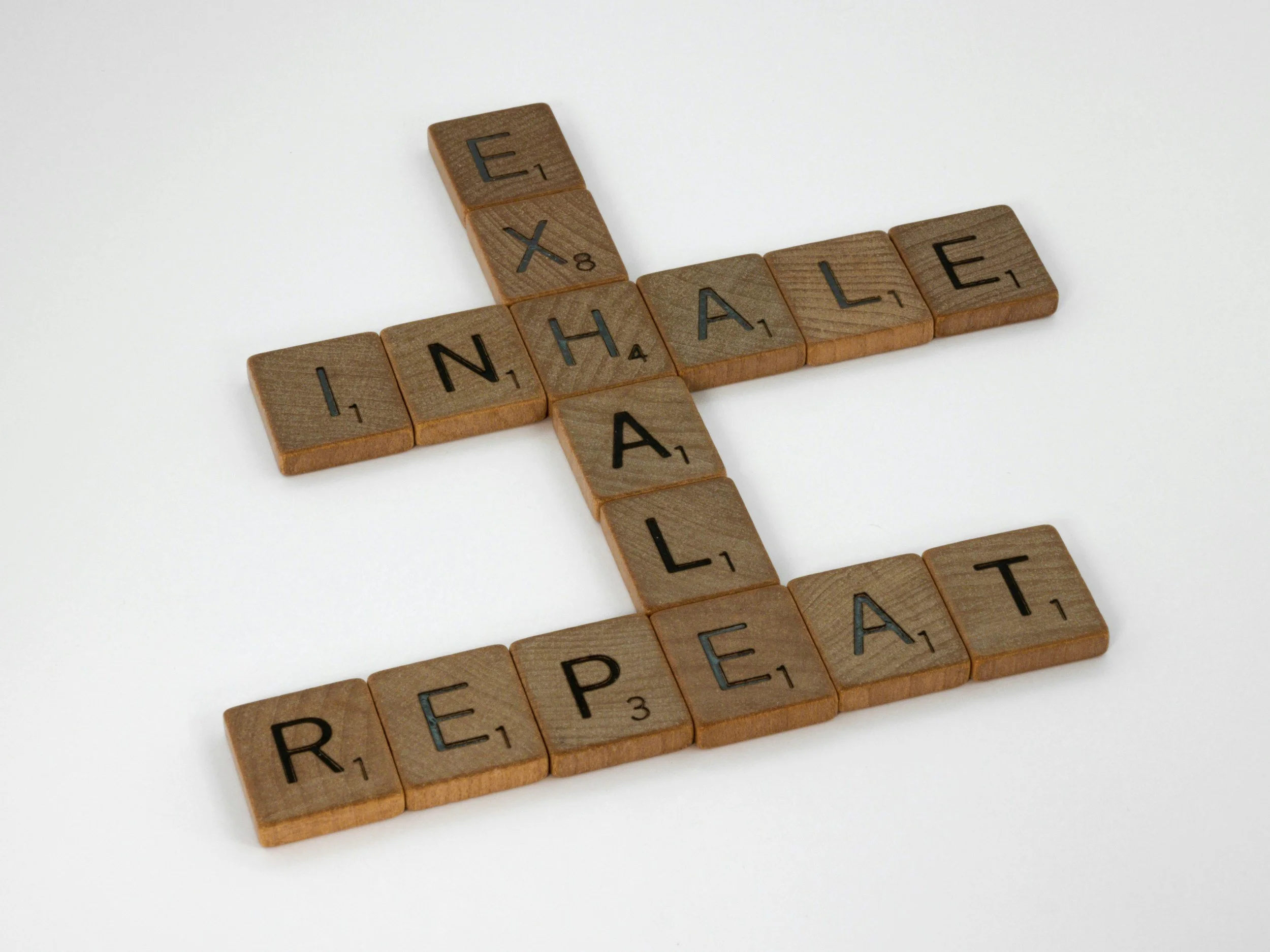
Educational Blogs from Our Mental Health Therapists
Learn about common challenges, including depression, anxiety, relationships,
trauma, and more, written by Maryland therapists!
Topic
- Anxiety
- Art in Therapy
- Biases
- Boundary Setting
- Brainspotting
- Burnout
- Business Owners
- COVID-19
- Careers
- Children & Teens
- Cognitive Behavioral Therapy (CBT)
- College Students
- Communication Skills
- DIY Crafts
- Depression
- Dialectical Behavior Therapy (DBT)
- Emotional Regulation
- Faith-Based
- First Responders
- Grief and Loss
- Highly-Sensitive Person
- International Clients
- Internships
- Ketamine-Assisted Psychotherapy
- LGBTQIA
- Men's Issues
- Mindfulness
- Motivation
- Neurodivergence
- Online Counseling
- Oppression
- Parenting
- Recovery
- Relationships
- Resources
- Sex Therapy
- Trauma and PTSD
- Women's Issues
- Workshop
Breaking Stigma, Building Resilience: Counseling for Men in Baltimore
As a man, getting into therapy for the first time may not be an easy choice. Blocks are everywhere – they come from inside us, next to us, from our neighbors, friends, and responsibilities. Today, I’m going to share a bit of what those blocks are and how we can overcome them, because the best thing we can do for ourselves as men is to understand why and how we are who we are. Therapy is a tool, not a tissue.
Am I Having a Panic Attack? Signs, Symptoms, and When to Seek Therapy in Baltimore
Have you ever been walking through Hampden and all of a sudden felt like the ground below you was dropping? Sitting on a boat in the Inner Harbor and lost your breath, seemingly out of nowhere? Randomly started to feel like you’re spinning while enjoying a Ravens game? If you can relate to these experiences, there’s a chance you might have had a panic attack.
You Don’t Have to Eliminate Anxiety: Acceptance and Coping Strategies for Marylanders
Anxiety shows up in many forms and from many causes. Some anxiety shows up seemingly out of the blue and can interrupt even the most pleasant of days. Anxiety like this can appear as anxiety attacks (also known as panic attacks). Some anxiety can be subtle and slow to develop but may have long term effects on our daily functioning and available energy.
Finding the Right Therapist in Maryland: Mental Health Lessons from “Good Will Hunting”
Therapy is not an easy process. As much as we want to quickly find help or check the therapy box from our list, mental health is not something that is simply cured overnight. The 1997 film Good Will Hunting looks at this struggle to rush therapy and the importance of trusting the process.
Setting Realistic Goals In the New Year: Therapist-Informed Tips for Maryland Adults
3…2…1… HAPPY NEW YEAR!!! Or… is it?
For many people, a new year is a time of excitement and joy, reflecting on the previous year and getting ready for a new one. But for others, a new year can be riddled with stress and the pressure of returning to work, trying to do better, and starting anew. It can be overwhelming to see everyone around you working toward their own goals and self-improvement, and feeling the pressure to do so yourself.
Practicing Acceptance During the Holidays: Therapeutic Support for Maryland Adults
The holidays can be full of contradictions: Time off leaves us exhausted, fun and social gatherings feel lonely or isolating, and small talk turns into big debates with politics, religion, or world affairs. If we acknowledge that contradictions do and will abound whether we want them to or not - like heaping portions or inflatable lawn decorations - we can start to practice acceptance to shrink the discomfort of contradictory environments.
Being Present During the Holidays: Mindfulness Tips from a Baltimore Counseling Practice
Have you ever walked away from the holidays feeling empty? Have you forgotten about your holiday memories immediately after returning to work? Or have you looked around the table and been frustrated at how separated everyone seemed? If you answered yes to any of the questions above, you might be struggling to be present during the holidays.
Your Guide to Holiday Stress Relief: Practical Coping Strategies for a Calmer Season
The holiday season is such a joyous time of the year, but it can also bring a lot of stress, and you aren’t alone in this. The American Psychological Association reported that about 9 out of 10 Americans feel stressed during the holidays because of finances, missing loved ones, and family conflict. When we are stressed out, it is important that we have healthy coping strategies ready in our back pocket. Here are seven way to make this season less stressful and more joyous.
Maryland Therapist-Approved Stress Coping Strategies You Can Try
Stress and anxiety are universal experiences, but many people still struggle to understand and manage them in healthy ways. At LifeSpring Counseling Services, our therapists help clients navigate these challenges every day by offering practical tools for coping and deeper insight into their emotions. I asked our clinicians what coping strategies they recommend to someone struggling with stress, and what some common misconceptions they wish people understood better.
How “The Big Sick” Shows Us the Different Ways We Cope with Anxiety
Everyone struggles with the rollercoaster of life. Whether it be finding a job, coping with medical problems, or trying to understand a complex relationship, life can come with so many ups and downs that it feels almost impossible to cope with them. The 2017 movie The Big Sick tackles these different themes by looking at the way anxiety trickles through each one.
Doing More than Surviving “Happy” Holidays in Maryland
The holidays can be a time of renewed connection with family and friends, traditions celebrated, good food shared, and a new year begun. However, the holidays can also leave us more than a little drained and sometimes frazzled. When the string lights turn on, those of us that are close to loss of a loved one, divorce, or career upset might feel daunted or even overwhelmed. “Have a happy holiday!” starts to feel like a demand rather than well-wishing.
How Our Maryland Therapists Relieve Stress in Their Own Lives
This might be a surprise to some, but therapists also feel stressed out and need a breather sometimes. To learn more about how our team at LifeSpring takes care of their own mental health, I asked them to share their favorite ways to unwind and small daily rituals that help them reset after a long day. Here is what some of them had to say!
Finding Your Way: Navigating the First Holiday Season After Divorce
After a divorce, separation, or break-up, the holiday season can be emotionally challenging. Looking ahead might fill us with anxiety, but preparing in advance can mitigate feelings of loneliness or sadness and allow us to recenter ourselves amidst the un-grounded-ness associated with shifting shared traditions. What follows are some strategies to help navigate the holidays with grace and health.
Finding Belonging and Purpose: How The Wild Robot Talks About Mental Health For Both Kids and Adults – A Baltimore Counseling Intern’s Reflections
One of my favorite films of the last few years is the 2024 animated movie The Wild Robot. The wonderful thing about this movie is that both children and caregivers can learn a lot about belonging, resilience, and believing in oneself through the story. Below are some reflections on how the film tackles these themes and the interesting way that we can learn from a robot what it is like to be human.
How Lilo & Stitch Helps Us Understand Grief, Change, and Belonging — A Baltimore Counseling Intern’s Take
One of my favorite films of all-time is the 2002 animated classic Lilo & Stitch. I loved this movie as a kid and the more I rewatch it, the more I realize just how much the stories of both Lilo and Stitch are meaningful to my life and the lives of so many others. Throughout the course of the film, you get to follow their journey adjusting to their new lives, battling grief, and finding their place in the world. In this blog, I’ll be sharing some reflections from the movie and how the characters humanize mental health struggles, especially for kids.
Intergenerational Trauma and Depression: A Counseling Intern’s Reflection of the Movie “A Real Pain” with Discussion Questions
Life keeps moving despite the pain we feel everyday. We try to find ways to ignore it and numb it, but pain fills our minds and won’t let go. The 2024 film A Real Pain recognizes this struggle and hones in on the ways different people experience pain. Throughout the film, you get glimpses of their mental health through discussions about depression, pain, and intergenerational trauma. I was struck by how real and vulnerable this film got, and how humanizing the mental health of these characters and their journeys felt.
Coping with Grief on Holidays and Anniversaries: Baltimore Counseling Support
Navigating significant dates or milestones after a loss can bring up emotional and physical responses we might not have experienced before. After a loss, dates that used to bring joy and celebration now stir up feelings of sadness and dread. In the following blog, I’ll share some creative strategies that can help you remember your loved one and ease anxiety and grief the next time a day on the calendar starts to sneak up on you.
What to Expect After Your Ketamine Dosing Session in Baltimore, MD
Completing your ketamine assisted psychotherapy session is only the beginning of your healing journey. The hours and days following treatment are just as important as the session itself. Many clients in Baltimore seeking ketamine therapy find that the integration period helps solidify the benefits of their experience. By creating a calm, supportive environment and being intentional with how you spend your time, you can maximize the positive effects of your ketamine treatment.
How to Prepare for Your Ketamine Dosing Session in Baltimore, MD
If you are considering ketamine therapy in Baltimore, Maryland, preparing properly can make your treatment more effective and meaningful. Being prepared can also help you feel more comfortable too, and that’s important! A ketamine-assisted psychotherapy (KAP) session is not a typical therapy appointment. It’s an intentionally curated space for healing, reflection, and growth that involves the use of a medication and a trained and attuned therapist. By following a few preparation steps, you can ensure that your body and mind are ready for the experience.
Navigating Change and Loneliness: A Baltimore Counseling Intern’s Reflections on The Banshees of Inisherin
Life always seems to pull us straight out of our comfort zone, plucking away the people and routines we feel are comfortable with. Whenever these transitions happen, the adjustment to a “new” life can be jarring. The 2022 film The Banshees of Inisherin takes a stark look at how three different men navigate difficult transitions in their lives.




















